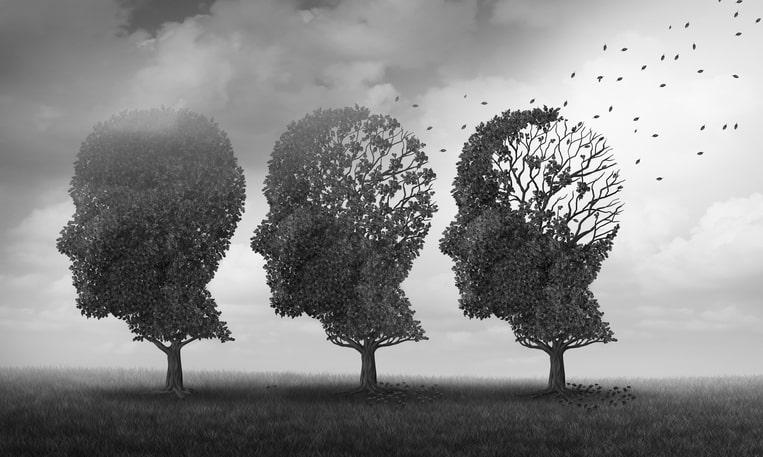Title: “Lost in the Clouds: Exploring Memory Loss under the Influence in the Reddit Realm”
In the vast and often whimsical universe of Reddit, discussions abound about everything from the mysteries of the cosmos to the peculiarities of everyday life. Among these threads, one topic has gained traction that raises eyebrows and invites curiosity: memory loss experienced while high. As users share their anecdotal experiences, the conversation navigates the intersection of cannabis use, cognitive function, and personal anecdotes. What reaches the forefront is not just the haze of forgetfulness, but a deeper inquiry into how altered states impact our ability to remember, retain, and even relate our thoughts. In this article, we delve into the experiences shared by Redditors, examining the science behind memory, the cultural context of cannabis consumption, and how these elements converge in moments where clarity can feel like a distant memory. Join us as we explore the captivating narratives of recollection and its absence in the relaxed haze of the high.
Table of Contents
- Exploring the Neurobiology of Memory Loss Induced by Cannabis Use
- Understanding the Social and Psychological Factors Contributing to Memory Impairment
- Practical Strategies for Mitigating Memory Loss in Cannabis Consumers
- Navigating the Balance: Responsible Use and Cognitive Health Preservation
- Q&A
- The Way Forward
Exploring the Neurobiology of Memory Loss Induced by Cannabis Use
The relationship between cannabis use and memory loss has drawn increasing attention from researchers delving into the complex neurobiology of the brain. When cannabis is consumed, the active compound THC (tetrahydrocannabinol) binds to cannabinoid receptors, predominantly located in areas of the brain associated with memory and learning, such as the hippocampus. This interaction can disrupt the normal communication pathways necessary for forming and retrieving memories. The specific effects are often dose-dependent, leading to variations in how individuals experience cognitive changes during and after cannabis use. Some users report a temporary lapse in memory or a general sense of fogginess, while others may experience lasting difficulties with recall, especially after frequent use over extended periods.
There are several factors that exacerbate the risk of cannabis-induced memory impairment:
- Frequency of Use: Regular consumption can lead to cumulative effects on memory.
- Potency of Cannabis: Higher THC concentrations are correlated with increased cognitive disruption.
- Age of Initiation: Adolescents are particularly vulnerable to cognitive impairments due to ongoing brain development.
- Genetic Predisposition: Some individuals may have a genetic makeup that makes them more susceptible to memory loss when using cannabis.
Research also suggests that while many users experience a temporary decline in memory performance, some may recover cognitive functions upon cessation or reduction of use. This reversibility raises questions about the brain’s capacity for resilience and adaptation in response to substances that influence its neurochemistry.
Understanding the Social and Psychological Factors Contributing to Memory Impairment
Memory impairment can often be traced back to a complex interplay of social and psychological factors. These elements create a backdrop that not only influences memory function but also shapes how individuals perceive and cope with memory loss. Some of the key factors include:
- Stress and Anxiety: High levels of stress and anxiety can significantly hinder cognitive functions, making it difficult for individuals to encode and retrieve memories.
- Social Isolation: A lack of social interaction can affect mental health, leading to cognitive decline and memory issues.
- Depression: Emotional disorders, particularly depression, are closely linked to memory impairment, affecting concentration and recall abilities.
- Substance Abuse: Alcohol and drugs can have neurotoxic effects on the brain, exacerbating memory loss and cognitive dysfunction.
Moreover, environmental and lifestyle factors play a crucial role in an individual’s overall cognitive health. The table below highlights various factors and their potential impact on memory impairment:
| Factor | Impact on Memory |
|---|---|
| Poor Nutrition | Deficiencies in essential nutrients can impair brain function. |
| Lack of Sleep | Sleep deprivation impacts both short-term and long-term memory. |
| Chronic Illness | Medical conditions can lead to cognitive issues that manifest as memory loss. |
| Age | Natural aging processes can affect memory retention and retrieval. |
Practical Strategies for Mitigating Memory Loss in Cannabis Consumers
When it comes to reducing memory loss associated with cannabis use, adopting mindful habits can make a significant difference. Stay organized by creating a structured environment that minimizes distractions. Utilize tools like to-do lists, planners, or digital reminders to help keep your tasks and commitments in check. Additionally, consider setting specific times for consuming cannabis, ideally when you have a clear agenda or activity planned. This can help prevent the feeling of forgetfulness from creeping into everyday tasks.
Incorporating cognitive-enhancing practices into your routine can further support memory retention while enjoying cannabis. Engage in regular mental exercises such as puzzles or memorization games to keep your mind sharp. Mindfulness and meditation techniques can also contribute to improved focus and memory clarity. It might be beneficial to stay hydrated and maintain a balanced diet rich in vitamins and omega-3 fatty acids, as these nutrients can positively impact cognitive function. Here’s a quick reference table outlining the recommended practices:
| Practice | Benefit |
|---|---|
| Stay Organized | Reduces distractions |
| Cognitive Exercises | Enhances memory skills |
| Mindfulness Meditation | Improves focus |
| Hydration & Nutrition | Supports brain health |
Navigating the Balance: Responsible Use and Cognitive Health Preservation
In a world increasingly dominated by digital interactions, maintaining cognitive health while engaging with platforms like Reddit requires mindful strategies. Users often find themselves drawn into discussions that can be both enlightening and overwhelming. To achieve a harmonious balance, it’s essential to set clear boundaries around usage and prioritize content that fosters constructive thinking. Consider implementing the following practices:
- Limit Screen Time: Allocate specific periods for browsing, allowing for breaks and reflective thinking.
- Curate Your Feed: Follow subreddits that promote positive discourse and personal growth.
- Engage Actively: Instead of passively consuming content, interact thoughtfully—ask questions or provide insights.
Moreover, the connection between responsible use and cognitive preservation shouldn’t be underestimated. Understanding how digital engagement affects mental faculties is crucial. Here’s a simple overview of the impact of excessive usage versus balanced engagement:
| Usage Type | Cognitive Impact |
|---|---|
| Excessive Scrolling | Increased distractions, reduced focus on tasks |
| Mindful Engagement | Enhanced memory retention, improved problem-solving |
By adopting these behavioral modifications, users can significantly enhance their cognitive well-being while enjoying the rich tapestry of information Reddit has to offer. This conscious approach not only fosters more meaningful interactions but also ensures the brain remains agile and adaptable in the digital age.
Q&A
Title: Memory Loss While High: Understanding the Phenomenon
Q1: What does it mean to experience memory loss when high?
A1: When people refer to memory loss when high, they’re often talking about short-term or working memory lapses. Under the influence of certain substances—like cannabis—individuals may find it challenging to recall recent events or retain new information. This kind of memory impairment can create a surreal, often humorous experience, where the mind feels foggy or disconnected from reality.
Q2: Why does cannabis affect memory in this way?
A2: Cannabis primarily affects the brain through its active compound, THC (tetrahydrocannabinol). THC binds to cannabinoid receptors, particularly in the hippocampus, which plays a crucial role in forming new memories. When THC is active, it can disrupt the normal functioning of this area, leading to moments of forgetfulness or difficulty concentrating.
Q3: Is memory loss the same for everyone when high?
A3: Not quite! The degree of memory loss can vary significantly from person to person. Factors like the strain of cannabis, individual tolerance levels, dosage, and even the person’s baseline mental health can all contribute to the experience. While some may experience intense forgetfulness, others might feel only mild effects or none at all.
Q4: Are there any other substances that cause similar memory loss?
A4: Yes, several substances, including alcohol and certain prescription medications, can also lead to memory lapses. Much like cannabis, these substances can alter brain function and impact the processes involved in memory formation and retrieval.
Q5: How long does memory loss typically last after using cannabis?
A5: The duration of memory loss can depend on several factors including the dose and individual tolerance. For most people, acute memory impairments generally last for a few hours after the effects peak, but the lingering effects can sometimes be felt for the remainder of the day, especially if higher doses are consumed.
Q6: Can regular use of cannabis lead to long-term memory issues?
A6: Research on the long-term effects of cannabis on memory is still ongoing, with some studies suggesting that regular use—especially during adolescence—may be linked to persistent memory deficits. However, the extent of these effects can be influenced by various factors, including the age of first use, frequency of use, and the overall cognitive health of the individual.
Q7: Is it possible to mitigate these memory effects while using cannabis?
A7: Indeed! Some users find that opting for low-THC or high-CBD strains helps reduce memory impairment. Staying hydrated, managing dosage, and engaging in mentally stimulating activities can also support cognitive function while high. Ultimately, individual experimentation may be key to discovering what works best.
Q8: What advice would you give someone concerned about memory loss when using cannabis?
A8: If you’re concerned about memory loss, it’s important to reflect on your usage habits. Consider reducing your dosage, choosing strains with lower THC levels, or taking breaks between sessions. Additionally, paying attention to your mental state and overall health can foster a more positive experience. Always consult a healthcare professional if memory issues persist beyond your cannabis use.
while experiencing memory loss when high can feel perplexing, understanding the underlying mechanisms can help demystify the phenomenon. Awareness and moderation can go a long way in ensuring a more enjoyable experience.
The Way Forward
the phenomenon of memory loss while under the influence, as discussed on platforms like Reddit, opens up a multifaceted dialogue about the complexities of our own minds. While anecdotal experiences abound, they remind us that memory is a fragile tapestry, woven together by the threads of chemistry, context, and consciousness.
As we continue to explore the intricate relationship between substances and cognition, it’s crucial to approach the topic with both curiosity and caution. Whether it serves as a cautionary tale or a source of humor in shared experiences, the narratives surrounding memory loss while high reflect not only our varied relationships with substances but also the ever-puzzling nature of human memory itself.
So, the next time you find yourself wandering through the haze of a high state, take a moment to reflect on the fleeting moments that slip through your grasp. After all, in embracing our forgetfulness, we may just uncover deeper insights into the colorful yet perplexing landscape of our minds.



